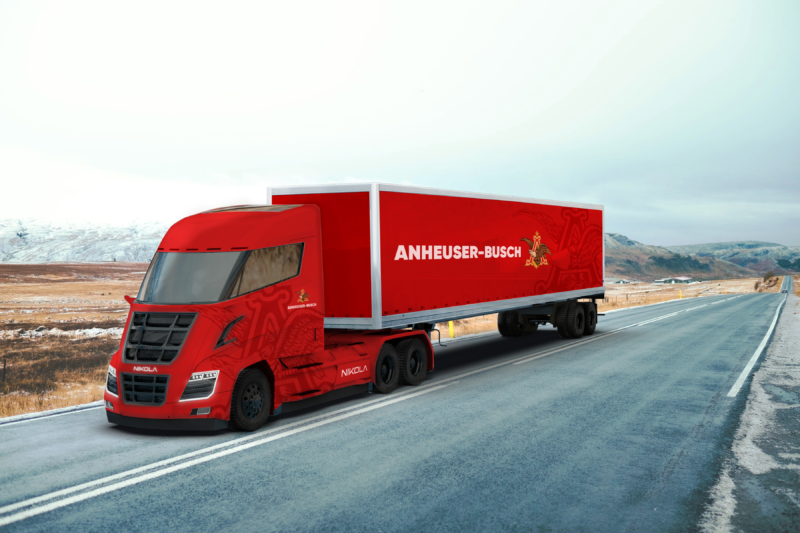By Michelle Price
Special to the UCBJ
CROSSVILLE – It seems every time Fitzgerald Truck Parts and Sales (Fitzgerald) receives positive news lately, there is negative news to offset it. Just as Fitzgerald was gearing up to begin producing zero emissions trucks for new client Nikola, the company was hit with a one-two punch from the feds.
The U.S. Department of Justice recently filed a counterclaim to the ongoing lawsuit filed by Fitzgerald alleging that the company owes $83 million in back taxes.
At essentially the same time, the Environmental Protection Agency’s (EPA) Office of Inspector General has concluded a 2017 EPA study used to promote limiting the production of glider kit trucks, one of Fitzgerald’s key products, was “consistent” with standard EPA practices and research standards and therefore, shouldn’t be dismissed.
Federal Taxes
Crossville-based Fitzgerald, one of the country’s largest manufacturers of refurbished highway tractors, took the government to the U.S. District Court for the Middle District of Tennessee in February after being notified it owed more than $64 million in tax assessments spanning from 2012-2014.
Attorneys for the U.S. Department of Justice have filed a counterclaim against Fitzgerald asserting that the amount owed by Fitzgerald has increased to $83,007,547.47 as of Feb. 18, 2019, based on interest accrued since the IRS assessed its tax bill in April 2017.
Fitzgerald claims that it is in no position to pay the disputed bill because they have not collected a 12% excise taxes from its customers.
The U.S. Tax Code imposes a 12% excise tax on the first retail sale of tractors used for
highway transportation in combination with a trailer or semitrailer. In cases where the excise tax applies, the seller lists the tax as a separate charge from the purchase price and submits the tax directly to the federal government.
Fitzgerald has argued that it is assembling a glider kit (typically consisting of, among other things, a cab, frame, steering gear, front axle, front wheels and tires) that doesn’t exceed 75% of the retail price of a new highway tractor and therefore, it is entitled to a “safe harbor” exception to a federal 12% excise tax imposed on new highway tractors.
Fitzgerald has also argued that the federal government has failed to charge excise taxes to other companies that sell similar glider kits.
The federal government in July filed a motion to dismiss the lawsuit filed by Fitzgerald and a motion to strike from evidence that other companies weren’t being treated the same as Fitzgerald. In a ruling by Chief District Judge Waverly D. Crenshaw, Jr., both motions filed by the government were denied allowing Fitzgerald’s lawsuit to continue.
Glider kit ruling
In a second setback, on July 31, the EPA released its preliminary report on the 2017 glider vehicle testing that was requested in response to two congressional inquiries raising concerns about the glider vehicle testing done by EPA in 2017. This report concluded that the study was “consistent” with EPA’s research standards and shouldn’t be dismissed.
The Nov. 20, 2017 report titled Chassis Dynamometer Testing of Two Recent Model Year Heavy-Duty On-Highway Diesel Glider Vehicles was used by EPA to justify significant limitations on the market for glider kit trucks.
Regulations put into effect as a result of this study capped production of gliders by manufacturers such as Fitzgerald at 300 glider vehicles a year beginning in January 2018. Fitzgerald, as the country’s largest producer of glider kit vehicles, had been manufacturing upwards of 5,000 glider vehicles per year, so the implementation of this regulation drastically impacted the company’s operations throughout the Upper Cumberland.
READ MORE: Fitzgerald awaits EPA repeal decision
The preliminary report casts doubts on whether a repeal of the glider limitations will pass. Since the final report on the 2017 glider testing is not due until late fall or early 2020, the glider limitations will remain in effect for now.
New contract
Fitzgerald’s positive news is that startup Nikola Motor Company has confirmed that Fitzgerald, one of its early investors, will build their first 5,000 Class 8 long haulers.

Nikola, a direct competitor to Tesla, will focus on zero-emission hydrogen-electric trucks. According to company officials earlier this year, there are already more than 13,000 Nikola trucks on order, with Anheuser-Busch reserving 800 for use in long-haul deliveries from breweries to distributors.
Nikola will break ground on its main manufacturing facility in Coolidge, Ariz. later this year with full production estimated for 2022-2023. In the interim, Fitzgerald will be producing Nikola trucks in its Byrdstown facility.
Numerous attempts to reach Fitzgerald officials for comment were unsuccessful at the time this story was posted.









